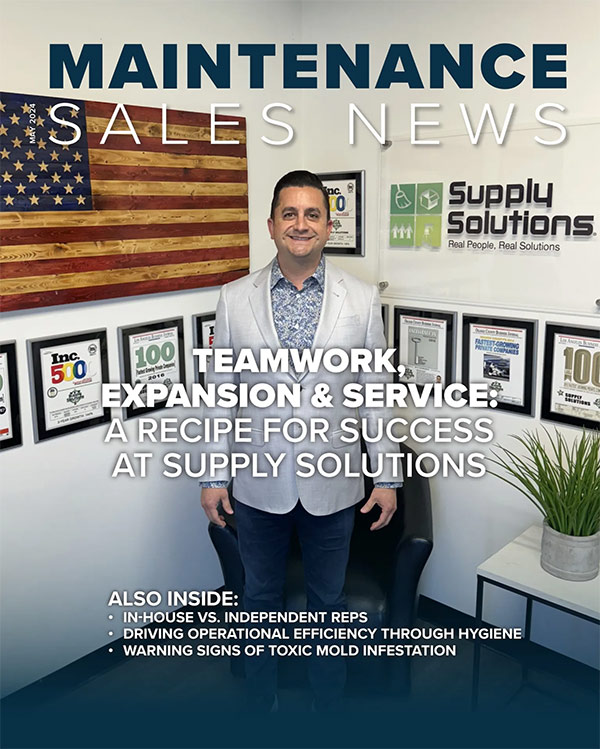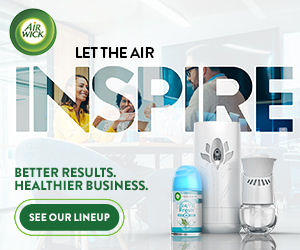Lessons From Football Season: Driving Operational Efficiency Through Hygiene
By Rachel Olsavicky, MBA, Regional Marketing Manager, Commercial & Public Interest at Essity
While the NFL football season may have come to an end, stadium facility managers across the United States are working year ‘round to power an exceptional fan experience for millions every year. With Super Bowl LVIII boasting some of the highest ticket prices on record, fans are increasingly expecting a higher-quality experience for their investment. While most fans don’t immediately think of hygiene when they step into their favorite team’s stadium, the truth is that effective hygiene management is key to providing a seamless experience for spectators. Whether improving cleanliness and restroom efficiency, or increasing sustainability efforts, there are many valuable lessons in facility operations that can be learned from football season.
Don’t Drop The Ball: Enhancing Fan Experience With Hygiene
Long lines for the restroom, empty soap and paper towel dispensers, and unclean high-traffic areas throughout a facility are a serious fumble for fans. These inefficiencies take precious time away from the game, and lead to fans feeling like they haven’t gotten high value for the price of their ticket — meaning they’re less likely to come back. A better fan experience means increased revenue, so organizations can’t afford to ease up on their hygiene protocol and risk receiving complaints or bad reviews.
In recent years, guest expectations around hygiene and cleanliness have increased, which has helped raise standards across the industry. To meet these demands, facility managers need to take a more holistic approach to hygiene to not only meet guests’ expectations, but also provide staff with cleaning solutions that are quick, effective and reliable.
Consider this: 41 percent of consumers agree that they are less likely to go to places that do not offer paper hand towels as a hand drying alternative to jet air dryers[1]. With so many guests being selective about the hygiene elements available in facility restrooms, it’s important to offer options that meet these high standards. And ultimately, it’s a win-win: hand towels are not only more hygienic (it’s proven that jet air dryers spread 10X more bacteria[2]), but they also service more guests at a time and serve multiple purposes like helping guests avoid touching faucets and door handles.
When it comes to helping staff be more efficient, it’s all about high-capacity dispensers. By implementing these dispensers that are easy to refill and serve more guests between each refill, you can reduce soap and towel outages for fans and maximize your cleaning staff’s time. By moving guests in and out of the restrooms more efficiently, fans can spend more time making the most of their gameday experience, which ultimately boosts business performance and the facility’s reputation.

Effective hygiene management is key to providing a seamless experience for spectators. (Photo courtesy of Essity)
Teaming Up With The Right Hygiene Partner
Not all venues are created equal when it comes to hygiene. In a business where stadium facilities host tens of thousands of guests each week, it’s essential to choose a professional hygiene partner that understands high-traffic venues specifically. For example, hygiene considerations in an office building differ because, unlike stadiums, these facilities service roughly the same number of people with similar demographics during a set time period each day. Partnering with a vendor that has experience managing hygiene in large-scale event venues like stadiums is key to achieving operational success.
In selecting a hygiene partner, consider your facility’s unique needs — What types of events are you hosting? What are the audiences for these events? Especially for multipurpose stadiums that may host a football game on Sunday, then a concert on Monday, it’s important to leverage a team that knows the ins-and-outs of coordinating logistics and smoothing pain points across different types of events. For example, an experienced hygiene partner can help facilities transition bathroom and cleaning operations between an event with heavier male attendance one day, and a concert for a musical act that has a primarily female fan-base the next day, to maximize efficiency and resources without diminishing the quality of the stadium experience for guests.
Additionally, consider your own organization’s sustainability goals when searching for a hygiene partner, and ensure their objectives and business practices align with your targets. One thing to look out for when choosing a hygiene partner is ensuring their products have been certified by trusted third-party organizations. Look for certifications like FSC®, Green SealTM, ECOLOGO, or supplier ratings like Ecovadis — to fans, these demonstrate that your stadium prioritizes responsible sourcing and that your suppliers are meeting high environmental standards across the supply chain.
Quarterbacking The Future Of Sustainable Stadiums
Consumers are becoming more aware of corporate sustainability efforts and are increasingly inclined to put their time and money toward products and experiences that align with their values. In fact, 78 percent of U.S. consumers say a sustainable lifestyle is important to them[3]. It’s critical for companies to embrace sustainability to meet these demands, but sustainability also offers several benefits to operational efficiency and cost savings. While leaders typically look to more obvious areas to boost sustainability, such as energy efficiency and sustainable supply chain practices, hygiene is an unexpected area where sustainability counts, and stadiums can win big on reducing waste and increasing efficiency in their cleaning practices.
For example, one-at-a-time dispensing technology helps serve more people per dispenser while decreasing waste. In foodservice areas of the stadium, one-at-a-time napkin dispensers have been proven to cut waste by more than 50 percent by reducing the number of unused napkins thrown away[4]. In facility restrooms, switching to biodegradable hand soap can also reduce impacts on local aquatic animals while utilizing less water for hand washing. With opportunities to incorporate sustainable hygiene throughout the stadium, from foodservice to restrooms and other areas, there are numerous opportunities to unlock excellent experiences for fans while protecting the planet.
Keeping a stadium that hosts thousands of fans each weekend clean can feel more challenging than winning the Super Bowl — but it doesn’t have to be. With a strategic approach to hygiene management, centered around efficiency and sustainability, stadiums can score better business performance and improved experiences for the fans of today and tomorrow.
The Tork brand offers professional hygiene products and services to customers worldwide ranging from restaurants and healthcare facilities to offices, schools and industries. Our products include dispensers, paper towels, toilet tissues, soap, napkins and wipers, but also software solutions for data-driven cleaning. Through expertise in hygiene, functional design and sustainability, Tork has become a market leader that supports customers to think ahead so they’re always ready for business. Tork is a global brand of Essity and a committed partner to customers in more than 110 countries. To keep up with the latest Tork news and innovations, please visit Torkusa.com.
Essity is a leading global hygiene and health company. We are dedicated to improving well-being through our products and services. Sales are conducted in approximately 150 countries under the leading global brands TENA and Tork, and other strong brands, such as Actimove, JOBST, Knix, Leukoplast, Libero, Libresse, Lotus, Modibodi, Nosotras, Saba, Tempo, TOM Organic, Vinda and Zewa. Essity has about 48,000 employees. Net sales in 2022 amounted to approximately SEK 156bn (EUR 15bn). The company’s headquarters is located in Stockholm, Sweden, and Essity is listed on Nasdaq Stockholm. Essity breaks barriers to well-being and contributes to a healthy, sustainable and circular society. More information at www.essity.com.
[1] 2021 Survey conducted by United Minds in cooperation with CINT in March 2021. The survey covered 7 markets China, France, Germany, Spain, Sweden, UK and US with a total of 7063 respondents (global average).
[2] Best et al, J Hosp Infection, 2014
[3] Joint research from McKinsey and NielsenIQ, 2023: www.mckinsey.com/industries/consumer-packaged-goods/our-insights/consumers-care-about-sustainability-and-back-it-up-with-their-wallets
[4] 1-ply napkin in Tabletop dispenser compared to Tallfold (Tork Dispenser: 1TBS and Tork Refill: D3052B





